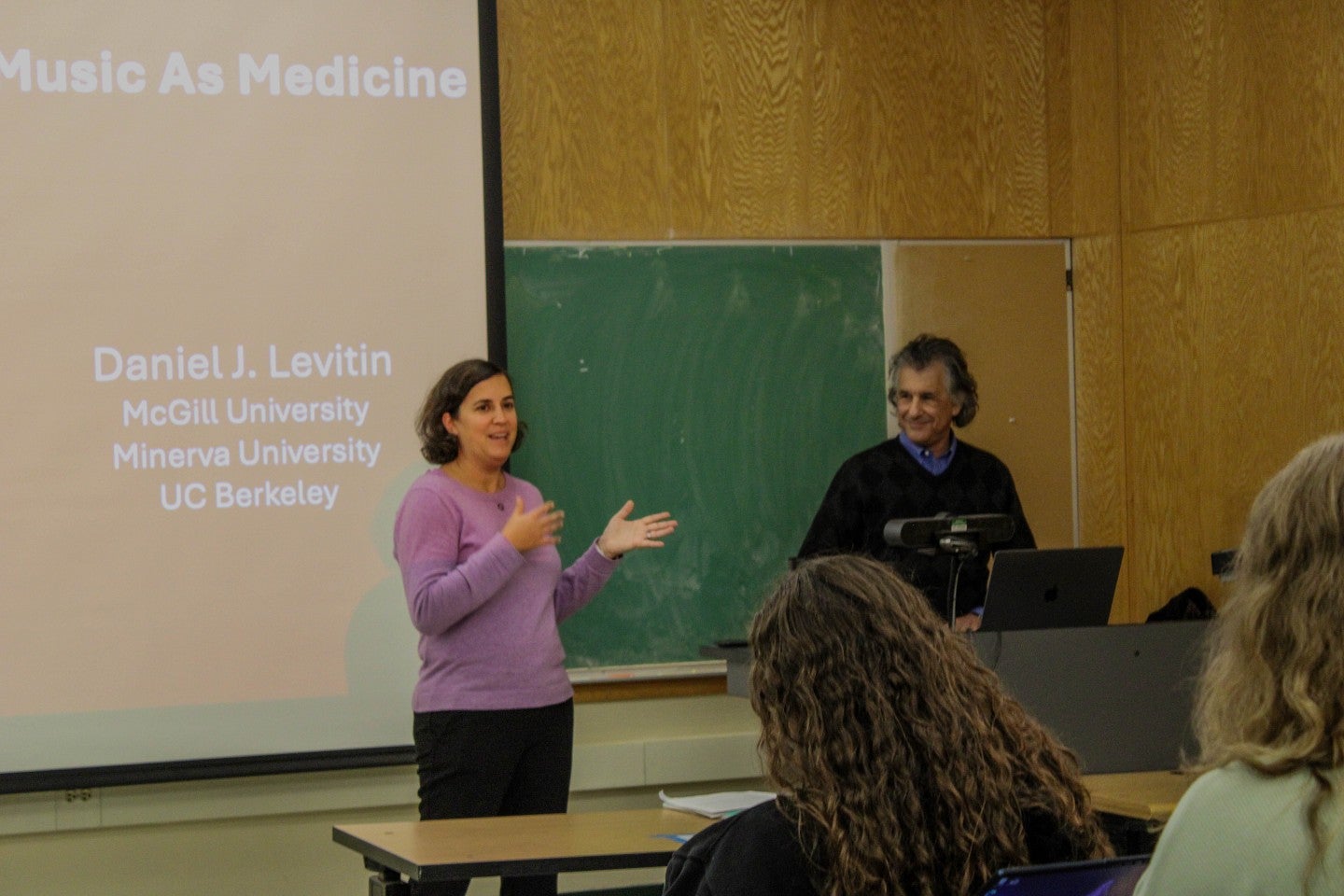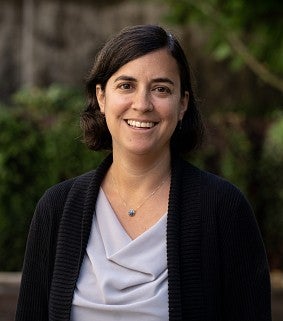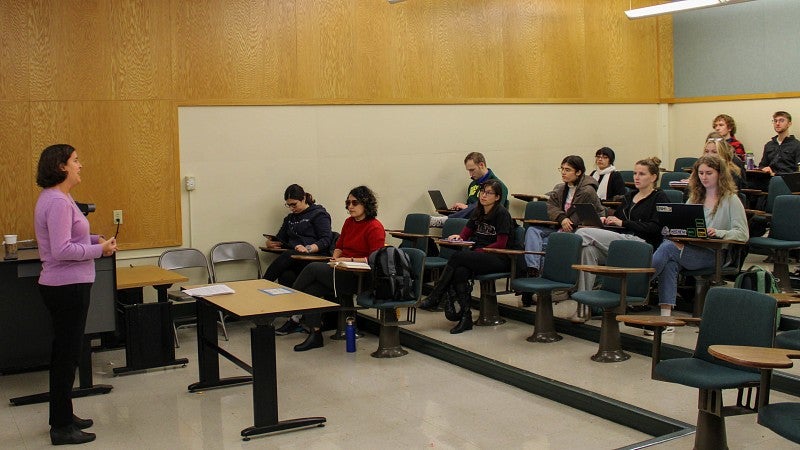
Neuroscience instructor leverages own human memory research to help students succeed
Neuroscience instructor Nicole Dudukovic has a unique insight into her students’ brains, at least when it comes to how they remember what they learn in class.
This year, Dudukovic was recognized for her distinguished teaching with a Herman Faculty Achievement Award, which is presented to faculty who have made significant contributions to student learning at the University of Oregon.

As a senior instructor, Dudukovic teaches and advises students in the psychology department and the Clark Honors College. In 2020, she helped create the undergraduate neuroscience major, which she now directs.
Her background in human memory research has had a big impact on how she teaches. Dudukovic finds joy in using what she’s learned to help her students succeed. This means prompting students to connect new information with their own lives to make it more personally meaningful, and therefore, easier to remember. Students also get practice retrieving information on their own, so it’s easier for them to remember it down the road.
Dudukovic said it’s so inspiring to her when students come back to see her a few years after taking one of her classes and share that they’re still using some of the strategies she taught.
Having been a more introverted student herself, Dudukovic makes sure to provide a variety of ways for students to engage in her classes.
“I try to make it so students feel comfortable participating in whatever way works for them, whether it’s talking with a classmate, reflecting on their own, or sharing with the whole class, and that they feel like their participation when they speak up is really valued,” she said.
She’s also working to update the content of her courses, including bringing in research from more diverse perspectives and giving students experience with brain imaging data, as the neuroscience field evolves.

That’s what really keeps me going, just the students that I have in my classes and seeing that moment when something clicks with them or seeing when they get excited about something that I’m excited about too. That’s really meaningful.
The number one thing she recommends to faculty members who are getting started in their careers is to not teach in a vacuum. There are many teaching engagement opportunities on campus throughout the year, and Dudukovic said not only has she learned so much from attending them, but it’s also special to be around people who value teaching as much as she does.
It was a workshop nearly a decade ago that introduced her to the concept of backward design, in which instructors shape course activities around the learning objectives students should achieve. Dudukovic said it revolutionized the way she thought about teaching, and she’s designed her courses this way ever since, down to individual class sessions.
“Rely on your colleagues too, and don’t be afraid to reach out if someone else has taught a course before to get ideas, share materials, things like that,” she added.

While Dudukovic sometimes has to adapt her teaching for a large lecture hall or a small seminar class, some principles always hold true. This includes active learning and getting students to engage with each other, she said.
Above all, the students are her favorite thing about teaching.
“I feel like I’ve learned so much from them, and I also feel like working with them helps keep me young and hopeful for the future,” she said. “That’s what really keeps me going, just the students that I have in my classes and seeing that moment when something clicks with them or seeing when they get excited about something that I’m excited about too. That’s really meaningful.”
By Chelsea Hunt, Office of the Provost Communications
